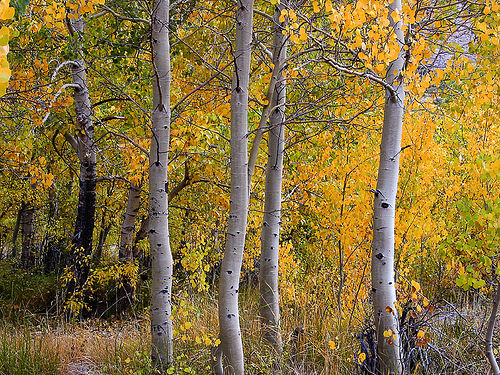Droughts kill trees — but until now scientists didn’t know the root of the problem

Throughout the West, aspens are quaking for good reason.
About 17% of the aspen in the Colorado Rockies have died in the last decade. That’s about one in every six trees. The widespread die-off, called sudden aspen decline, began after a severe drought and heat wave. So people studying the trees knew that’s what triggered the deaths, but they didn’t know what exactly killed the trees.
William Anderegg, a grad student at Stanford, with help from a team of scientists there and at the University of Utah, has zeroed in on the culprit, and describes the work in a paper published this week. There were two working theories: failures in photosynthesis, which would mean less food for the tree; or damage to the roots, which would mean less water. Anderegg found it was the roots.
“Our study provides a snapshot of what future droughts could hold for the emblematic tree of the American West,” Anderegg said in a press release. “Our results indicate an impaired ability to transport water due to drought damage plays an important role in the recent die-off of aspens,” .
With this research, scientists will be able to better understand and predict how forests will respond to rising temperatures and drier conditions.
